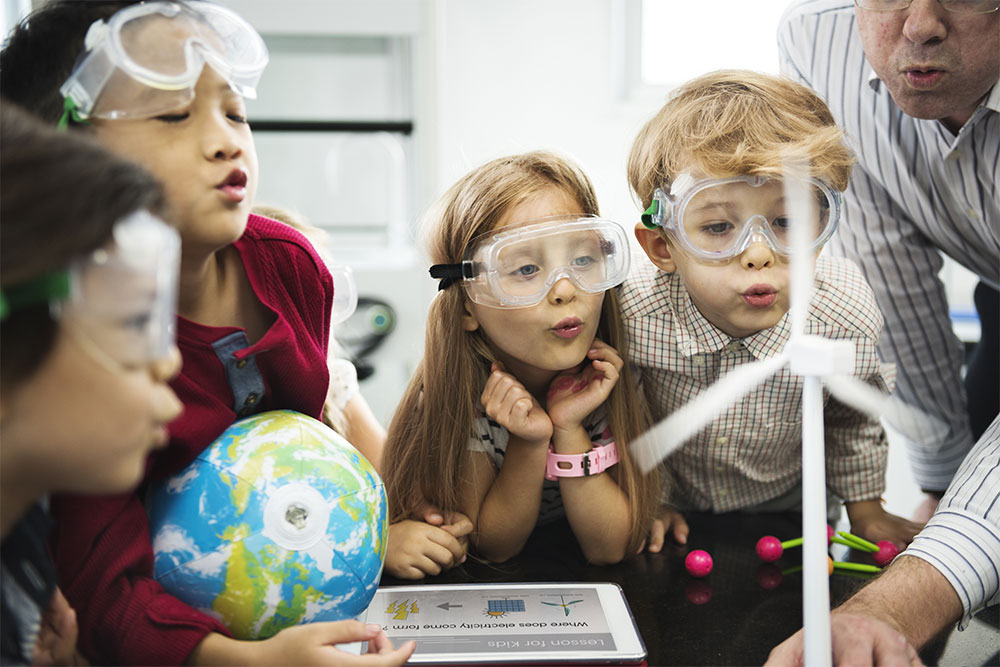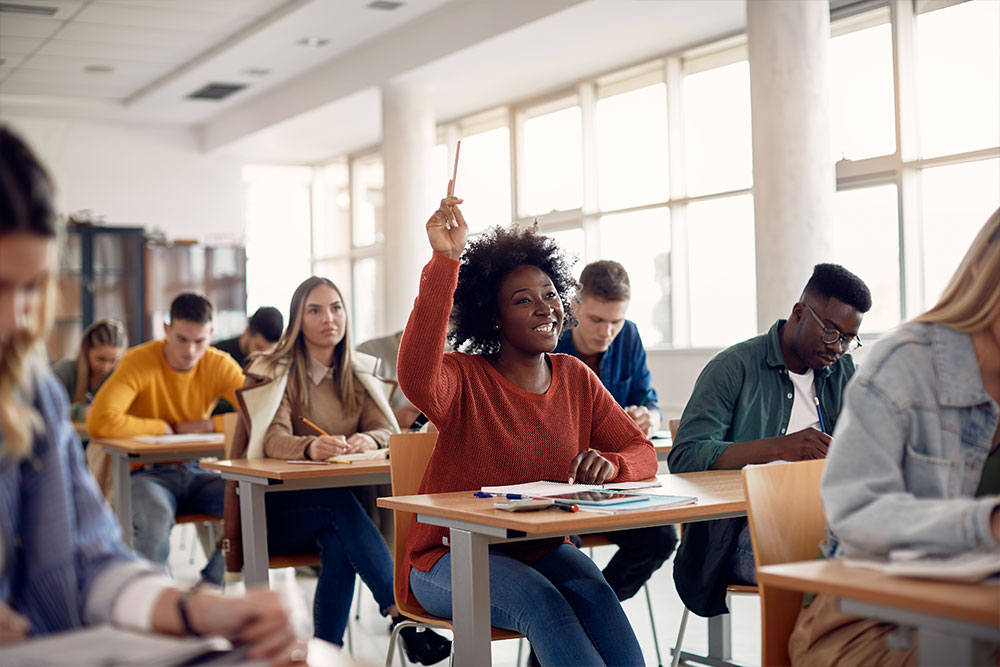Learning is a complex process influenced by various factors. In this comprehensive guide, we will explore the key elements that affect your ability to learn effectively. Understanding these factors can help you overcome challenges and enhance your learning experience.
Understanding the diverse factors affecting learning is essential for educators, students, and anyone involved in the educational process. These multifaceted "factors affecting learning" encompass a range of elements that can either enhance or hinder the learning experience. Recognizing and addressing these "factors affecting learning" is vital for creating effective and supportive educational environments.

1. Mental/Intellectual Factor
The term "intellect" has no accepted definition. Therefore, operations define intelligence. It is the capacity to think, reason, relate to people, handle emotions, solve problems, pursue interests, have a sense of right and wrong, and exist within the constraints of our environment. Intelligence is defined as the ability to generate goods that society values and solve challenges. It is believed that the concept of a single intellect is false since people actually have several intelligences operating from distinct parts of the brain. Additionally, he argued that different people had different mixtures of the different intelligences.
In general, academic success is linked to intellectual ability. An individual's natural capability is critical in influencing the success of the learning process. Students with intellectual limitations, and this affects their learning ability to a large degree.
The presence of a specific deficiency could be indicated by a low score in one subject and high scores in others. Psychology demonstrates that people have distinct types of intelligence. In the counselling and diagnosis of handicap, understanding the nature of the pupil's intelligence is quite useful.

2. Learning Factor
Factors such as a lack of understanding of what has been taught, incorrect work or study practises, and a limited experimental background can all impair a student's learning process. If the school moves too quickly and does not continually check to see if the student is grasping what is being taught, the student will develop a number of deficits that will interfere with his or her ability to learn.
Basic addition, for example, is necessary for successful multiplication work in mathematics. In addition, weakness will contribute directly to the lack of multiplication. Failure in history may also be related to a lack of reading ability or an inability to communicate in English.
Similarly, the pupil may have learned ineffective study methods as a result of poor instruction. Other types of difficulty that are directly related to learning variables can pause their progress.
The two categories of elements that greatly influence and mediate learning are personal and environmental. Personal characteristics include things like aptitude, motivation, and hobbies. Environmental problems affect society, the economy, and culture. Together, these two components function within the same system. Within the context of the environment, both environmental and personal factors take place.

3. Physical Factor
Health, physical development, nutrition, visual and bodily disabilities, and glandular abnormalities are all included in this category. It is widely acknowledged that poor health hinders physical and motor development, and that hunger obstructs learning and physical growth. The impact of physical health on learning should not be underestimated. A healthy body is the vessel of a sharp mind, making it crucial to prioritize self-care as you embark on your educational journey.
Children with visual, auditory, and other physical disabilities have a hard time learning basic skills like reading and spelling. Various internal secretory glands, such as the thyroid and pituitary glands which control hormone secretion, have been shown to influence behaviour. The learner's health will most likely have an impact on their capacity to learn and concentrate.
Among the numerous abilities that children with visual, auditory, or other physical defects find much more difficult to acquire are reading and spelling. Moreover, it has been demonstrated that a number of internal secretory glands, including the thyroid and pituitary, affect behaviour. The pituitary and thyroid glands are two of these glands. As a result, the learner's health is probably going to have an impact on his ability to concentrate and learn.

4. Mental Factor
Mental elements include attitude. Organic and kinesthetic factors combine to form attitudes. They are not to be confused with emotions that are characterised by visceral disturbances within the body. Attitudes are more or less categorical. They have a significant role in the individual's mental organisation and overall conduct.
Attitudes play a role in the development of a person's personality. Interest, joy, affection, prejudice, open-mindedness, and loyalty are among these attitudes. Attitudes have a stimulating effect on the rate of learning and teaching, as well as educational progress. The learner's attitude has an impact on the efficiency of the task and the speed with which it is completed on a daily basis. Learning is aided by a positive mental attitude. In nature, the factors of interest and symbolic drive and reward are inextricably linked.
Attitudes are formed in part by both kinesthetic and biological elements. They are not the same as feelings associated with physical pain. They are in charge of a large percentage of the person's overall behaviour and mental organisation. A person's attitudes also have a big impact on how their personality develops. These mindsets encompass traits like fondness, joy, curiosity, bias, allegiance, and receptivity.

5. Social And Emotional Factors
Personal and social elements such as instincts and emotions, as well as collaboration and rivalry, are all linked to a complicated psychology of motivation. It is a well-known truth that an individual's diverse responses to various types of stimuli are influenced by a wide range of tendencies.
Some of these natural tendencies are beneficial, while others are detrimental. A student may have developed a hate for a subject for a variety of reasons, including a failure to perceive its usefulness or a lack of basis. This distaste causes a negative emotional state.
Some students are unhappy all of the time because they are afraid of being picked on by their teachers and peers. This is an unhealthy factor that has a significant impact on the learning process. This is frequently the result of insufficient training.
The knowledge or misconception that one is worse off than others in terms of well-being is also the source of social unrest.

6. Environmental Factor
The physical conditions required for learning are influenced by the environment. The environment in which learning takes place is one of the aspects that influences its efficiency. Classrooms, textbooks, equipment, school supplies, and other educational resources are all included.
If instruction is to yield the desired results, learning settings in the classroom and at home must be favourable and adequate. It is impossible to deny that the type and quality of instructional materials and equipment have a significant impact on the school's instructional efficiency.
Learning settings need to support achievement on the home and academic fronts if education is to be successful in achieving the desired results. As a result, the amount and calibre of instructional resources that are accessible have a big impact on the school's capacity to accomplish its main goal of educating its students. It is challenging to provide an effective education at a low-quality, under-resourced facility. Building a school is useless if the educational goals and purposes of the building are not given enough thought.
Study Techniques
Effective study techniques are essential for productive learning. We'll introduce you to various study methods and help you choose the ones that suit your learning style. Auditory learners, like the ones in your class, learn best when they listen to material and associate it with sounds. Setting aside lots of time for group discussions is one strategy to support auditory learners in your classroom. Reading and writing learners like to learn through the use of written language, which is why they are commonly confused with the visual learning method. Give the reading and writing pupils enough time to organise their ideas and write their responses. Some people learn best while they are moving, therefore they could act agitated in class. This is because kinesthetic learners are naturally skilled at deciphering and enacting bodily instructions—like those for a game or dance. Kinesthetic learners are more likely to retain information when it is connected to action. As an educator, should be aware of the ways in which you prefer to learn, and you should make it a point to include activities and opportunities in which students of varying learning styles can participate while feeling at ease and interested.
Teaching Methods
Explore different teaching methods and their impact on your learning experience. Understand how educators can adapt their approaches to enhance your understanding. As an educator, one should be aware of the ways in which you prefer to learn, and you should make it a point to include activities and opportunities in which students of varying learning styles can participate while feeling at ease and interested. Not carrying out duties on a daily basis, but rather being able to lead and inspire students by virtue of one's moral example and moral character is the most significant part of a teacher's profession. A person's personality, in the strictest sense, is the complex combination of traits that distinguishes them from other individuals of their kind. It is made up of all the elements that have gone into making the person that they are today. Therefore, personality is the product of many interrelated factors.
Processing Speed
Learn about techniques to improve your processing speed. In this age of information, the strategies you employ to harness the power of your mind are limitless. Speed is a vital factor while one is working on multiple tasks. From adapting your learning techniques to subjects and staying motivated to nurturing your intellectual, physical, mental, emotional, and social well-being, the path to learning is unique for each individual. Remember, the journey of learning is an ongoing one, filled with exploration and self-discovery. Embrace the factors that influence your learning, for they are the keys to unlocking your full potential. Your commitment to understanding and optimizing these factors sets you on a transformative course towards lifelong learning and personal growth. As you continue your educational quest and grow in learning, remain open to new techniques and approaches. By doing so, you empower yourself to conquer challenges, expand your knowledge, and create a brighter future.
Motivational Factors
Here are some of the key factors that can impact your ability to learn:
1.Motivation: Your level of motivation plays a crucial role in your ability to learn. If you are motivated and have a strong desire to learn, you are more likely to overcome obstacles and persist in your learning efforts.
2.Health and Well-being: Physical health, nutrition, and sleep are all critical factors. Proper nutrition and sufficient sleep contribute to cognitive function and overall well-being, which can enhance your ability to learn.
3.Teaching and Instruction: The quality of instruction and the teaching methods used can greatly impact learning outcomes. A skilled and engaging teacher or learning materials can make a significant difference.
4.Memory and Cognitive Abilities: Individual differences in memory and cognitive abilities can influence learning. Some people may have better memory or problem-solving skills than others.
5.Mental and Emotional Resilience: The ability to overcome setbacks, adapt to new challenges, and persevere through difficulties is important for successful learning. Resilience can help you bounce back from failures and setbacks.
6.Time Management and Organization: Effective time management and organizational skills help you plan your learning and allocate sufficient time to different tasks.
Conclusion
In the pursuit of knowledge the factors that influence your ability to learn is paramount. Learning is a personal journey, shaped by various factors. By acknowledging these influences, you gain the power to adapt your learning process and enhance your educational experience. Constructing an environment that fosters concentration and minimizes distractions is a fundamental step towards achieving your educational goals.
FAQs:
Q1: What are the most common intellectual factors that affect learning?
A1: Intellectual factors that affect learning include memory, attention, problem-solving abilities, and cognitive skills. These factors play a crucial role in how individuals process and retain information. Strategies to enhance memory and attention can include mnemonic devices, regular practice, and mindfulness techniques.
Q2: How can I identify my unique learning style and preferences?
A2: Identifying your learning style involves self-assessment and reflection. You can determine your preferences by considering how you best absorb information—through visual, auditory, or kinesthetic methods. Understanding your learning style helps tailor your study techniques for optimal learning.
Q3: Can physical health directly impact learning outcomes?
A3: Yes, physical health significantly influences your ability to learn. Adequate nutrition, exercise, and quality sleep are essential for cognitive function. A balanced diet and regular physical activity contribute to improved concentration and memory.
Q4: What is the relationship between emotional well-being and learning effectiveness?
A4: Emotional well-being directly affects learning outcomes. Positive emotions enhance learning and memory, while stress and negative emotions can hinder the learning process. Strategies such as stress management, mindfulness, and emotional intelligence can improve emotional well-being and, consequently, learning.
Q5: How can I create an optimal study environment at home?
A5: To create an optimal study environment at home, ensure a quiet, well-lit space free from distractions. Organize your study materials, maintain proper ergonomics, and set a regular study schedule. Access to necessary resources, such as books and technology, is also essential.
Q6: What are some effective study techniques for different subjects?
A6: Effective study techniques vary depending on the subject and your learning style. For example, visual learners may benefit from mind maps and diagrams, while auditory learners could find recording lectures helpful. Experiment with different techniques to determine which ones work best for you.
Q7: How can teachers adapt their methods to enhance student learning?
A7: Teachers can adapt their methods by recognizing students' diverse learning styles and needs. Incorporating interactive activities, providing clear instructions, and offering regular feedback can enhance the learning experience. Encouraging student engagement and critical thinking is also crucial.
Q8: What strategies can improve processing speed for learning?
A8: Strategies to improve processing speed include brain training exercises, practicing critical thinking, and solving puzzles. Additionally, maintaining overall cognitive health through a balanced diet and regular exercise can positively impact processing speed.
Q9: How can I stay motivated throughout my learning journey?
A9: Staying motivated requires setting clear goals, celebrating small achievements, and maintaining a growth mindset. Reducing distractions and staying organized can also help boost motivation. Regular breaks, adequate rest, and incorporating enjoyable activities into your routine can keep you engaged in your learning.
Feel free to let me know if you'd like to add more questions or have any specific content in mind to enhance the page further.